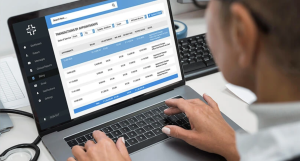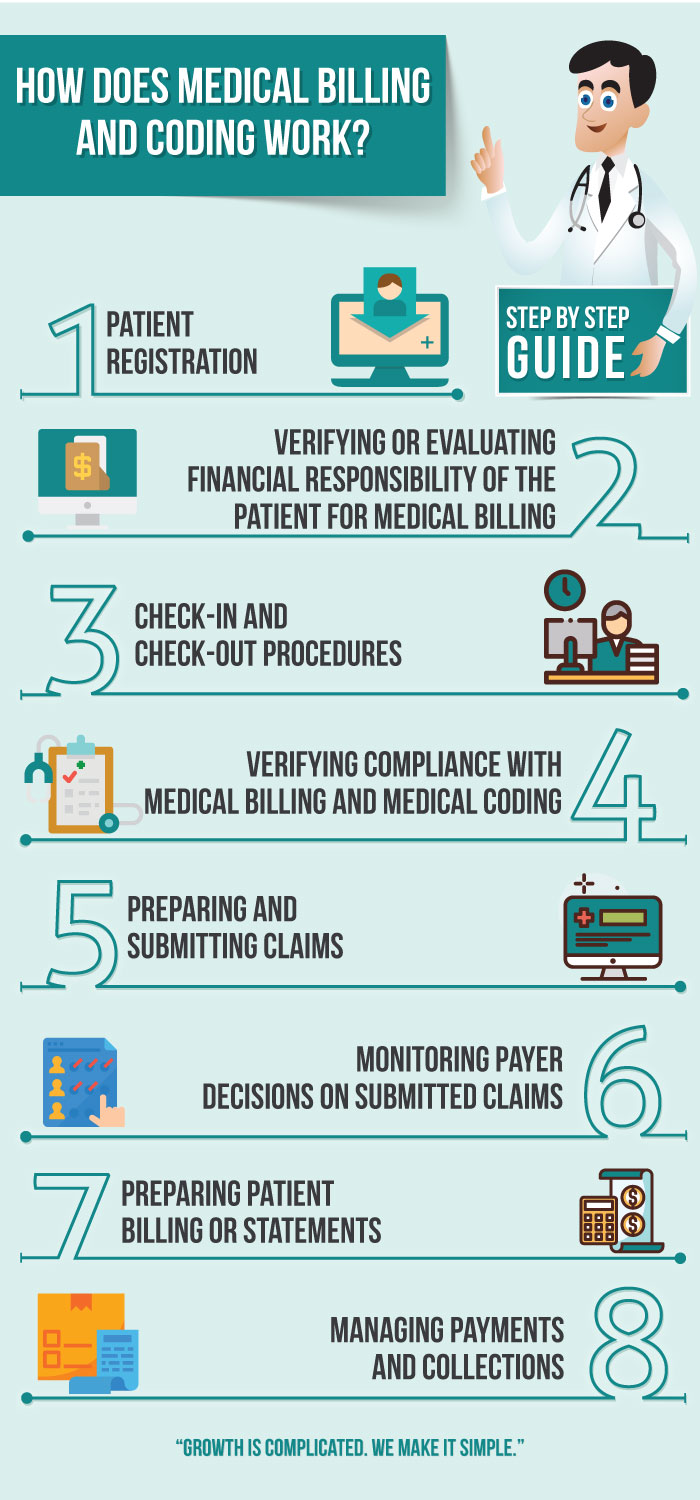In this article, you will gain an insightful understanding of the intricacies surrounding the field of medical billing and coding. From decoding complex healthcare information to navigating through detailed reimbursement processes, this profession plays a vital role in the healthcare industry. By unraveling the intricacies of medical billing and coding, you will gain a newfound appreciation for the individuals who ensure accurate financial transactions and efficient communication between patients, healthcare providers, and insurance companies. Embark on this journey to uncover the fascinating world of medical billing and coding.
Overview of Medical Billing and Coding
Medical billing and coding is a vital component of the healthcare industry. It involves the process of translating medical procedures and diagnoses into standardized codes for billing and insurance purposes. This comprehensive article will provide an in-depth exploration of medical billing and coding, including its definition, importance in the healthcare industry, responsibilities of medical billers and coders, necessary skills and qualifications, training and education options, certification and licensing requirements, working environment, interactions with healthcare professionals, job outlook and salary, challenges and rewards, and technological advancements in the field.
Definition of Medical Billing and Coding
Medical billing and coding is the process of translating medical procedures, diagnoses, and services into standardized codes that are universally recognized by healthcare organizations, insurance providers, and government agencies. These codes are used for billing purposes, allowing healthcare providers to receive payment for services rendered, and for insurance purposes, ensuring accurate reimbursement to patients and providers. The codes used in medical billing and coding can range from simple numeric codes to more complex alphanumeric codes, depending on the specific coding system utilized.
Importance of Medical Billing and Coding in the Healthcare Industry
Medical billing and coding play a crucial role in the healthcare industry for several reasons. Firstly, accurate coding is essential for proper reimbursement from insurance companies. If procedures and services are not coded correctly, healthcare providers may not receive the appropriate payment for their services, which can significantly impact their revenue and financial sustainability. Secondly, coding is essential for maintaining accurate medical records and patient histories. Proper coding ensures that patients’ medical records are comprehensive and up-to-date, facilitating effective communication between healthcare professionals and ensuring continuity of care. Lastly, medical billing and coding are critical for compliance with various regulatory requirements, including billing guidelines, insurance regulations, and government mandates.
Responsibilities of Medical Billers and Coders

Medical Coding
One of the primary responsibilities of medical billers and coders is medical coding. Medical coding involves translating physicians’ notes, laboratory results, diagnoses, and procedures into standardized codes using coding systems such as the International Classification of Diseases (ICD) and the Current Procedural Terminology (CPT). Accuracy and attention to detail are paramount in this process, as even minor errors can lead to significant financial repercussions and potential disruptions in patient care. Medical coders must stay updated with the latest coding guidelines and regulations to ensure accurate coding and compliance with industry standards.
Medical Billing
Medical billing is another critical responsibility of medical billers and coders. Once coding is complete, billers use the assigned codes to generate accurate patient bills and claims for submission to insurance companies and government payers. This process requires an understanding of various reimbursement systems, insurance policies, and billing regulations. Medical billers also handle the processing of rejected or denied claims and work closely with insurance companies to resolve disputes and ensure proper payment. Proficiency in medical billing software and knowledge of billing procedures is essential for success in this role.
Insurance Claims Processing
In addition to medical coding and billing, medical billers and coders are responsible for insurance claims processing. This involves verifying patients’ insurance coverage, submitting claims electronically or via mail, and managing communication with insurance companies. The goal is to ensure prompt and accurate reimbursement for healthcare services provided. Claims processing requires a thorough understanding of insurance policies and procedures, as well as the ability to navigate complex billing systems and resolve any discrepancies or issues that may arise during the claims process.
Required Skills and Qualifications
To excel in the field of medical billing and coding, several skills and qualifications are necessary. These include:
Knowledge of Medical Terminology
A strong command of medical terminology is crucial for medical billers and coders. Understanding medical terms, abbreviations, and procedures allows them to accurately assign the correct codes and ensure proper reimbursement. Familiarity with anatomy, physiology, and common medical diagnoses is essential for decoding physicians’ notes and documentation.
Proficiency in Medical Coding Systems
Proficiency in medical coding systems such as the International Classification of Diseases (ICD) and the Current Procedural Terminology (CPT) is a fundamental requirement for medical billers and coders. These coding systems provide the framework for translating medical procedures and diagnoses into codes recognized by insurance companies and regulatory agencies. Staying updated with the latest coding guidelines and revisions is crucial to ensuring accuracy and compliance.
Attention to Detail
Attention to detail is a critical skill for medical billers and coders. Accuracy is paramount in properly coding procedures and diagnoses, as even minor errors can lead to claim denials or delays in payment. Medical billers and coders must possess the ability to carefully review documentation, identify relevant information, and assign appropriate codes with precision.
Computer Literacy
Proficiency in computer skills and the use of specialized medical billing and coding software is essential for medical billers and coders. They must be comfortable navigating electronic health record (EHR) systems, coding databases, and billing software to efficiently perform their duties. Strong technical skills enable them to access and update patient records, process claims electronically, and generate accurate reports.
Medical Billing and Coding Training and Education
To enter the field of medical billing and coding, individuals can pursue various training and education options. These include certification programs, associate’s degree programs, and continuing education opportunities.
Certification Programs
Certification programs offer a focused and intensive curriculum that prepares individuals for entry-level positions in medical billing and coding. These programs typically cover medical terminology, anatomy and physiology, coding systems, billing procedures, and industry regulations. Completing a certification program demonstrates a foundational understanding of medical billing and coding and can increase job prospects in the field.
Associate’s Degree Programs
Associate’s degree programs in medical billing and coding provide a more comprehensive education and typically include coursework in medical coding, billing practices, healthcare ethics, and healthcare management. These programs offer a well-rounded education and can open up opportunities for advancement in the field. Additionally, some associate’s degree programs may provide hands-on experience through internships or clinical rotations.
Continuing Education
Continuing education is crucial in the dynamic field of medical billing and coding. Ongoing professional development facilitates keeping up with evolving industry standards, coding guidelines, and technology advancements. Various organizations and educational institutions offer seminars, workshops, and online courses that provide opportunities to enhance knowledge and skills in specific areas of medical billing and coding.
Certification and Licensing
Certification and licensing are essential credentials for medical billers and coders and demonstrate proficiency and adherence to industry standards. Although certification is voluntary, it is highly recommended as it can significantly enhance job prospects and professional credibility. Several organizations provide certification programs, including the American Academy of Professional Coders (AAPC) and the American Health Information Management Association (AHIMA).
Certification Organizations
The AAPC offers several certifications, including Certified Professional Coder (CPC), Certified Outpatient Coding (COC), and Certified Inpatient Coder (CIC). These certifications require passing a comprehensive examination and demonstrating proficiency in medical coding principles and guidelines.
The AHIMA offers the Certified Coding Specialist (CCS) certification, which focuses on inpatient coding, as well as the Certified Coding Associate (CCA) certification, which covers both inpatient and outpatient coding. These certifications validate the knowledge and skills necessary for accurate and compliant medical coding.
Licensing Requirements
While certification is voluntary, some states may require medical billers and coders to obtain a license to practice. Licensing requirements vary by state and often involve passing a state-specific examination or meeting specific educational and experiential criteria. It is essential for individuals pursuing a career in medical billing and coding to research and understand the licensing requirements of the state in which they intend to practice.
Working Environment
Medical billers and coders work in a variety of settings, including office-based settings, remote work opportunities, and collaboration with healthcare professionals.
Office-based Settings
Many medical billers and coders work in healthcare facilities, such as hospitals, clinics, physician offices, and billing companies. In a traditional office setting, billers and coders collaborate with other administrative staff, healthcare providers, and billing departments to ensure accurate and timely billing and claim processing. Working in an office setting allows for immediate access to resources, collaboration with colleagues, and real-time communication with healthcare professionals.
Remote Work Opportunities
Advances in technology have enabled medical billers and coders to work remotely. Remote work offers flexibility and allows individuals to work from home or other remote locations, provided they have the necessary equipment and a secure internet connection. Remote positions in medical billing and coding are increasingly common and offer professionals the opportunity to maintain a work-life balance while still contributing to the field.
Team Collaboration
Medical billers and coders often collaborate with other healthcare professionals, such as doctors, nurses, and medical coders. Effective teamwork is essential for accurate coding, billing, and claims processing. Collaboration with healthcare providers ensures that medical documentation is complete and supports the assigned codes, while collaboration with medical coders helps resolve any coding-related discrepancies or challenges. Effective communication and teamwork contribute to accurate and efficient medical billing and coding practices.

Interactions with Healthcare Professionals
Medical billers and coders interact with various healthcare professionals throughout their work, including doctors, nurses, and insurance companies.
Working with Doctors and Nurses
Medical billers and coders often work closely with doctors and nurses to retrieve missing or incomplete information needed for accurate coding and billing. Effective communication with healthcare providers is essential to ensure comprehensive and precise medical records. Billers and coders may seek clarification or additional documentation from doctors and nurses to ensure that the correct codes are assigned and billed accurately.
Communicating with Insurance Companies
Medical billers and coders frequently interact with insurance companies to verify patients’ coverage, submit claims, and resolve any billing discrepancies or denials. Clear and concise communication with insurance companies is crucial to ensure that claims are processed accurately and promptly. Billers and coders may need to provide additional information or appeal denied claims, requiring effective negotiation skills and an understanding of insurance policies and procedures.
Collaborating with Medical Coders
Medical billers and coders often collaborate with medical coders to ensure accurate coding and claims processing. Coders may review billers’ work to ensure coding accuracy and adherence to coding guidelines. Collaboration between billers and coders allows for a comprehensive and quality-focused approach to medical billing and coding, minimizing errors and maximizing reimbursement for healthcare services provided.
Job Outlook and Salary
The demand for skilled medical billers and coders is expected to grow in the coming years, creating favorable job prospects in the field. The aging population and increased need for healthcare services contribute to the growing demand for medical billing and coding professionals. According to the Bureau of Labor Statistics (BLS), the employment of medical records and health information technicians, which includes medical billers and coders, is projected to grow at a rate of 8% from 2020 to 2030, faster than the average for all occupations.
Average Salaries for Medical Billers and Coders
The average salary for medical billers and coders varies depending on factors such as experience, education, location, and employer. According to the BLS, as of May 2020, the median annual wage for medical records and health information technicians was $44,090, with the top 10% earning more than $71,150. Specialized certifications, advanced degrees, and years of experience can contribute to higher earning potential in the field.
Challenges and Rewards
A career in medical billing and coding comes with its own unique challenges and rewards.
Dealing with Complex Coding Guidelines
One of the main challenges faced by medical billers and coders is the complexity of coding guidelines. Medical coding systems such as the ICD and CPT are constantly evolving, requiring professionals to stay updated with the latest revisions and guidelines. The extensive code sets and detailed documentation requirements can be overwhelming, necessitating continuous learning and adaptation to changes in coding practices.
Contributing to Accurate Medical Records and Billing
By accurately coding medical procedures and diagnoses, medical billers and coders contribute to the creation of comprehensive and accurate medical records. Accurate medical records are crucial for effective communication between healthcare providers, continuity of care, and improved patient outcomes. The role of medical billers and coders in ensuring accurate billing also plays a vital part in the financial stability of healthcare organizations and the reimbursement process for patients.
Job Satisfaction and Professional Growth
Medical billing and coding can be a rewarding career path for individuals who enjoy working in a detail-oriented and analytical field. The job provides the opportunity to contribute to the efficiency and accuracy of healthcare services while working in a supportive and collaborative environment. Professional growth opportunities exist through continuing education, specialized certifications, and advancements into supervisory or management roles. The satisfaction of mastering complex coding guidelines and receiving fair reimbursement for healthcare services can be personally fulfilling.
Technological Advancements
Technological advancements in the field of medical billing and coding have transformed the way professionals perform their duties and have improved overall efficiency and accuracy.
Electronic Health Records (EHR)
The widespread adoption of electronic health records (EHR) has greatly impacted the medical billing and coding field. EHR systems allow for centralized and secure storage of patient data, making it easier for medical billers and coders to access and review relevant medical information. EHRs also facilitate the exchange of information between healthcare providers, eliminating the need for paper-based records and reducing the risk of errors or information loss.
Artificial Intelligence in Coding
Artificial intelligence (AI) is being increasingly used in medical coding to automate certain coding tasks and improve accuracy. AI-powered coding software can analyze medical documentation, identify relevant codes, and make coding suggestions, reducing the time and effort required by medical billers and coders. While AI is not capable of replacing human coders entirely, it can augment their work and improve efficiency.
Software and Online Tools for Medical Billing and Coding
Various software applications and online tools have been developed specifically for medical billing and coding. These tools streamline coding processes, assist in claims processing, and provide resources for accurate and efficient billing practices. From coding software that automatically suggests codes based on documentation to online platforms that facilitate electronic claims submission, technological advancements have revolutionized the way medical billers and coders perform their responsibilities.
In conclusion, medical billing and coding are essential components of the healthcare industry, ensuring accurate and timely reimbursement for healthcare services rendered. Medical billers and coders play a crucial role in translating medical procedures and diagnoses into standardized codes, generating patient bills, and managing the claims process. To succeed in this field, individuals must possess knowledge of medical terminology, proficiency in coding systems, attention to detail, and computer literacy. Training and education options include certification programs and associate’s degree programs, with continuing education available for professional development. Certification and licensing demonstrate proficiency and adherence to industry standards. Medical billers and coders work in various environments, including office-based settings and remote opportunities, collaborating with healthcare professionals to ensure accurate coding and billing. The job outlook for medical billers and coders is favorable, with average salaries varying depending on factors such as experience and location. Challenges in the field include complex coding guidelines, while rewards include contributing to accurate medical records and billing and job satisfaction. Technological advancements, such as electronic health records, artificial intelligence in coding, and software tools, have transformed the field and improved efficiency. Medical billing and coding are dynamic fields with opportunities for growth and a vital role in the healthcare industry.
